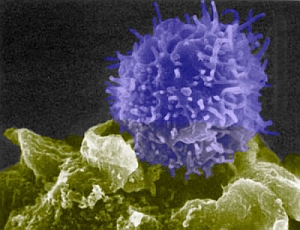Actelion Ltd, a biopharmaceutical company based in Switzerland, acquired Ceptaris Therapeutics Inc., a specialty pharmaceutical developer in Malvern, Pennsylvania, in a deal with a potential value of at least $250 million. The acquisition, however, depends on the U.S. Food and Drug Administration approving Ceptaris’s only current product, a topical treatment for symptoms from a rare form of non-Hodgkin’s lymphoma.
Ceptaris Therapeutics develops a gel form of topical mechlorethamine to treat mycosis fungoides, a rare form of non-Hodgkin’s lymphoma known as cutaneous T-cell lymphoma, in its early stages. Cutaneous T-cell lymphomas occur when T cells, white blood cells vital to the operation of the immune system, become cancerous. The cancerous T cells affect the skin, causing various skin lesions, although skin cells themselves do not become cancerous.
Mechlorethamine is a compound usually given as an injection during chemotherapy to treat Hodgkin’s disease and some types of non-Hodgkin’s lymphoma. Topical forms of mechlorethamine are the current standard of care for early stages of cutaneous T-cell lymphoma, but the only items of this kind available are non-standardized preparations compounded by pharmacies.
A clinical trial tested Ceptaris’s mechlorethamine gel, given the brand name Valchlor, to determine if it worked as well as a pharmacy-compounded mechlorethamine ointment, called a non-inferiority trial. The study involved 260 patients with early stage mycosis fungoides at 13 locations in the U.S. The company reports Valchlor worked at least as well as the pharmacy-compounded ointment in reducing the severity of the lesions caused by mycosis fungoides. Skin irritations, mainly dermititis, caused about 1 in 5 patients — both Valchlor- and ointment-treated — to withdraw from the trial.
Ceptaris first submitten a new drug application to the FDA for its mechlorethamine gel in 2011, and was granted fast-track and orphan-drug status by the agency. If approved by the FDA, it will be the first standardized topical mechlorethamine product to treat early-stage mycosis fungoides. Ceptaris says FDA set a target date of 27 August to complete its review.
That FDA approval is a key contingency of the acquisition. Under the deal, Actelion paid $25 million on signing, but will pay the remaining $225 million only when FDA approval of Valchlor and other closing conditions are met. Ceptaris shareholders will also be eligible for future commercialization milestone payments and sales royalties.
Actelion develops biologic therapies to treat pulmonary arterial hypertension and Gaucher’s disease, also a rare disorder. The publicly-traded company operates in 30 countries and has nearly 2,400 employees.
Read more:
- Venture Funding Down in 2Q, Health Companies Score in Exits
- AstraZeneca Acquires Respiratory Disease Therapy Developer
- Venture Funding Declines in Q1, Health Companies Buck Trend
- Mergers, IPOs for Venture-Backed Companies Down in 2012
- European Businesses Expect 4 Percent Annual R&D Growth
* * *


 RSS - Posts
RSS - Posts
[…] Actelion to Acquire Developer of Rare Cancer Treatment […]